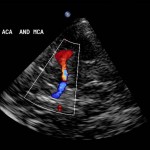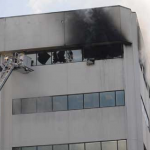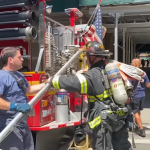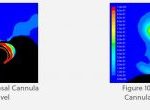The 3AM call for a vital signs check is always a frustrating one. We’ve all been there, half-asleep, exhausted, wrinkled uniform. The patient’s blood pressure is high, as usual, and it has been for years. They are non-compliant with medication. Your options now are to transport or secure patient refusal (or perhaps better for those in community health/paramedicine systems)
As healthcare providers, taking a few moments to educate (or motivate) this patient, as well as every other hypertensive patient we encounter, on hypertension management and the warning signs of stroke/heart attack is a basic duty inherent to our jobs. We don’t have to be pushy; professional counsel suffices.
The literature abounds with studies demonstrating the minorities and the poor neighborhoods of our communities are at an far higher risk of suffering a stroke and having a worse outcome. There is still significant delay (also here) in stroke patients activating EMS once stroke symptom onset occurs. Depending on the study, the delay from the time of symptom onset to ED presentation ranges from 2.5 hours-3.0 hours. This delay costs lives and health. If you don’t already, take a few moments and educate at-risk patients on the warning signs of stroke and heart attack and encourage them to call 911 should they suffer symptoms.









